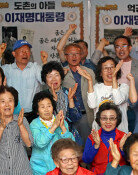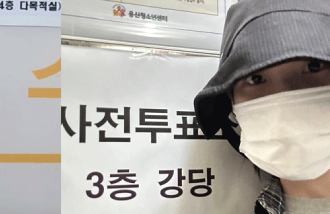[Editorial] Rohs America Policy
[Editorial] Rohs America Policy
Posted January. 02, 2006 03:07,
The Roh Moo-hyun regime is in its fourth year of rule, but the Korean peoples anxiety about Koreas foreign policy is showing no signs of vanishing anytime soon.
Prime Minister Lee Hae-chan said that ROK-U.S. relations Have never been better, but what the Korean people see and feel is different. The alliance is not in a state of slackness but rather in a state where fears are raised on the possibility of its dissolution. In addition, forecasts by experts from both countries for the New Year are mostly bleak. An overall review and revision of Korean policies is urgently needed.
The ROK-U.S. alliance should not be shaken any further. It is true that so far, the Roh administration, elated with autonomy and popular nationalism, moved toward getting closer to North Korea and distanced itself from the U.S. Examples of this are President Rohs comments on being Northeast Asias Balancer and that people more pro-American than Americans are the problem. Recently, he even gave the impression that he is taking North Koreas side regarding its human rights and the forged dollars issue.
However, that did not result in progress in North-South Korean relations. Despite the September 19 Beijing Agreement, North Korea is still not committing to general officer level talks and is passive about the six-party talks. North Korea only pocketed economic aid. This is the current state of being pro-North Korean and drifting away from the U.S.
Only when ROK-U.S. relations are healthy can Korea speak up in ROK-Japan and ROK-China relations. The US does not want ROK-Japan and Sino-Japanese relations to become strained and alter the status quo in Northeast Asia.
Yesterdays report by the Japanese Mainichi Daily that the George W. Bush Administration demanded Japan not turn its back on China and Korea because of history issues has significant implications. ROK-U.S. relations should be staunch so Koreas voice on Japans negligence of past history and Japans rising nationalist movement can be more effectively heard. The same applies to China.
It is true that we should prepare for changes in the future order of Northeast Asia. Nevertheless, there are just too many variables right now. If Korea moves hastily without the power to control change, it might end up signing another treaty giving up its sovereignty, like it did a century ago. Korea needs to cautiously deal with the changing political map on top of the ROK-U.S. relations. There is too much of a chance that if Korea becomes entangled in anti-Americanism and nationalism and fails to see a wider future, the country and its people will be miserable. That is the reason why Roh Moo-hyuns regimes foreign policy should not go astray anymore.







